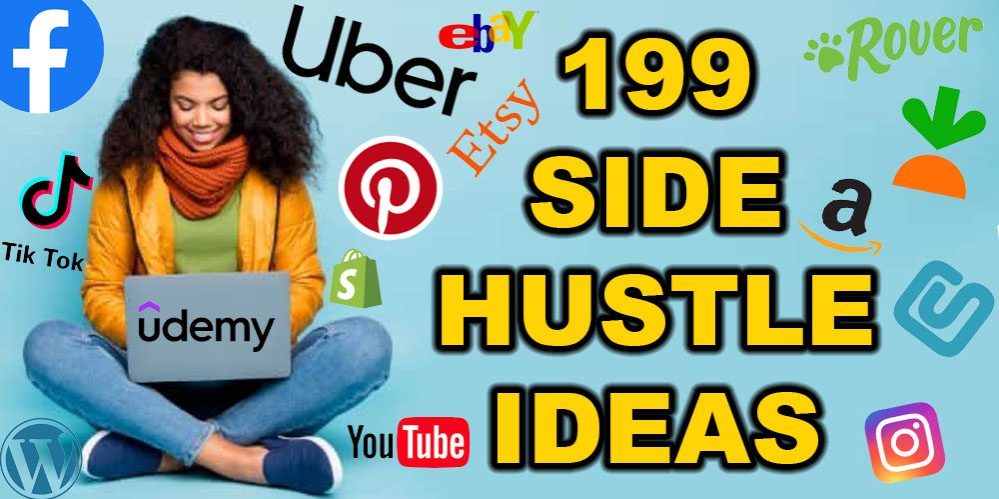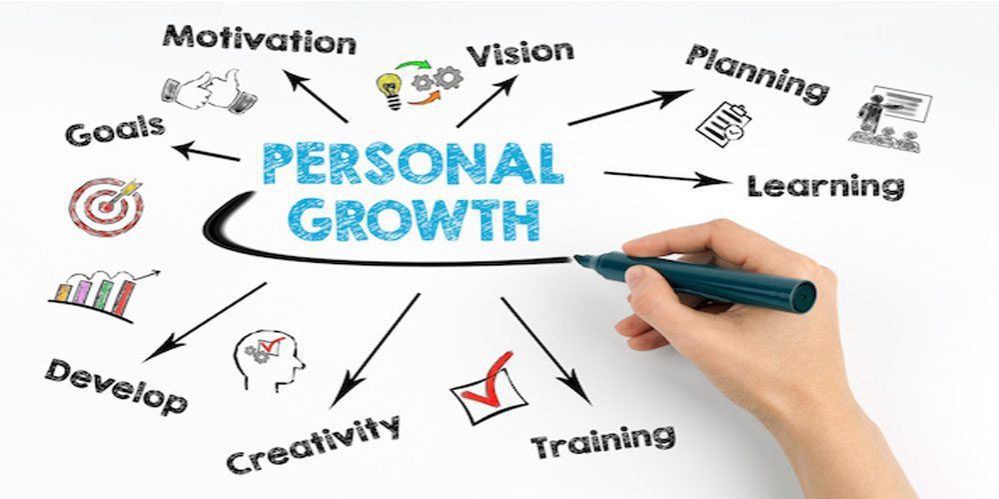Ah, the eternal quest to uncover our hidden talents and recognize our unique strengths! In a world brimming with possibilities, it is crucial to embark upon a journey of self-awareness in order to unlock our fullest potential. Have you ever wondered what sets you apart?
What skills and abilities make your heart sing? This article aims to explore the significance of self-awareness and why recognizing one's strengths can be a game-changer in both personal and professional realms.
Brief Explanation of the Topic – What am I good at?
Before delving into the depths of our individual prowess, let us briefly address the essence of this captivating topic. “What am I good at?” encapsulates an introspective exploration into identifying and comprehending our unique abilities, talents, and aptitudes.
It goes beyond mere skill assessment or evaluation; it entails a profound understanding of what truly makes us shine as individuals. By deciphering this enigma, we gain invaluable insights into aspects that come naturally to us or those we have cultivated over time through formal education, training programs, or hands-on experiences.
Importance of Self-Awareness
Ah, self-awareness! The cornerstone of personal growth and fulfillment.
Recognizing what we excel at serves as a catalyst for self-discovery. When we possess an acute awareness of our strengths, passions ignite within us like stars illuminating a darkened sky.
It empowers us to align our pursuits with these inherent gifts—transforming mere existence into purposeful living. Self-awareness elevates one's confidence levels while fostering resilience during life's challenges.
It equips individuals with a compass that guides them towards avenues where their abilities can best be harnessed, leading to increased satisfaction in personal endeavors and professional pursuits. Moreover, self-awareness allows us to make conscious choices, avoiding paths that may not align with our true nature.
Recognizing One's Strengths
Now, dear readers, let us turn our attention to the crux of this discussion—recognizing one's strengths. Self-awareness paves the way for identifying these remarkable attributes that define and distinguish us from the crowd. Our strengths can manifest in various forms: natural talents we were born with or skills we have honed over time through effort and dedication.
By acknowledging and embracing our strengths, we gain a sense of authenticity—a unique fingerprint that sets us apart from others. Recognizing these capabilities empowers individuals to capitalize on their innate gifts, leading to enhanced performance, increased productivity, and an overall sense of fulfillment.
Moreover, recognizing one's strengths enables individuals to make informed decisions regarding career choices or personal interests. Understanding what makes us thrive allows for greater focus on opportunities that align with our passions—opening doors to a more purposeful and satisfying life journey.
The High-Level Overview: Identifying Natural Talents and Abilities
Understanding our natural talents and abilities is crucial in recognizing what we are genuinely good at. These inherent aptitudes are the unique qualities that set us apart from others and make us excel in certain areas.
They can manifest themselves in various forms, such as exceptional problem-solving skills, artistic talent, or even a natural affinity for leadership. Identifying our natural talents often involves introspection and self-reflection.
Think about activities or tasks that come effortlessly to you, where you consistently perform well without much effort. Perhaps you possess a keen attention to detail that helps you excel in analytical thinking or have an inherent ability to empathize with others, making you an outstanding listener and communicator.
It's important to note that these natural talents can evolve over time as we gain new experiences and knowledge. Therefore, it's crucial to continuously evaluate ourselves and adapt accordingly.
Recognizing Acquired Skills Through Education, Training, or Experience
In addition to our inherent abilities, acquired skills contribute significantly to what we are good at. Education plays a vital role in honing our skills by providing structured learning opportunities that help develop expertise in specific fields. For instance, pursuing a degree in graphic design can equip individuals with the technical know-how needed to create stunning visuals.
Training programs are another avenue through which we acquire valuable skills. These can be formal workshops or informal mentorship arrangements where experienced individuals share their expertise with novices seeking growth opportunities.
For example, enrolling in a coding bootcamp can provide the necessary skills for software development careers. Experience is yet another invaluable teacher when it comes to acquiring skills.
Through real-life situations and hands-on practice within professional environments, we gain practical knowledge that cannot always be taught through traditional education or training programs. For instance, working in customer service can enhance our communication and problem-solving skills, making us proficient in handling various scenarios.
It's worth mentioning that both natural talents and acquired skills often intertwine to form a unique set of capabilities. Recognizing this synergy allows us to leverage our strengths and excel in endeavors that align with our passions.
Personal Attributes
Analytical Skills – Breaking down complex problems and finding solutions
Analytical skills are a valuable personal attribute that allows individuals to dissect complex problems, analyze their components, and find effective solutions. These skills involve the ability to think critically, gather relevant information, and apply logical reasoning.
Whether it's troubleshooting a technical issue, solving mathematical equations, or unraveling intricate puzzles, analytical skills come in handy in various situations. Consider a situation where you are faced with a complicated project at work that requires careful planning and problem-solving.
Your analytical skills enable you to break down the project into manageable tasks, identify potential obstacles or bottlenecks, and devise efficient strategies to overcome them. By analyzing the project's requirements and resources available, you can formulate a step-by-step plan that ensures success.
Moreover, analytical thinking extends beyond professional contexts. It can be applied in everyday life when making important decisions or solving personal dilemmas.
For instance, when considering different options for purchasing a new car or evaluating potential investments, your analytical skills empower you to weigh the pros and cons systematically. This way, you are more likely to make informed choices that align with your goals.
Creativity – Generating innovative ideas and thinking outside the box
Creativity is an inherent human quality that enables us to generate original ideas and think outside conventional boundaries. It involves connecting seemingly unrelated concepts in unique ways to produce novel solutions or create artistic expressions. From artists and inventors to entrepreneurs and problem-solvers of all kinds, creativity plays a crucial role in achieving success.
Imagine an artist who uses their creativity to capture emotions on canvas or express abstract concepts through sculptures. Their ability to see beyond what meets the eye allows them to create visual representations that evoke deep thoughts and feelings within others.
Similarly, creative problem-solving involves approaching challenges from diverse angles rather than sticking to traditional methods. This can lead to breakthrough innovations and more efficient solutions.
Incorporating creativity into different aspects of life brings numerous benefits. In the workplace, it sparks innovation and encourages employees to explore new approaches, leading to improved efficiency and productivity.
In personal relationships, creativity can foster deeper connections by introducing exciting experiences or finding unique ways to express love and affection. Embracing creativity in hobbies or leisure activities also adds a sense of fulfillment and joy.
Communication Skills – Expressing thoughts clearly and effectively
Effective communication is a vital skill that enables individuals to express their thoughts, ideas, and emotions in a clear and concise manner. It encompasses both verbal and written forms of expression. Strong communication skills allow for effective collaboration, relationship-building, and conveying information with impact.
Verbal communication strengths become evident in situations like public speaking or delivering presentations. A person with well-honed verbal skills can captivate an audience by articulating ideas confidently while maintaining engagement through tone, gestures, and eye contact.
They have the ability to convey complex concepts in a manner that is easily understood by others. On the other hand, written communication strengths are particularly valuable in professional writing or storytelling.
Through compelling narratives or informative reports, skilled writers can influence readers' perceptions, evoke emotions, or convey complex information effectively. The ability to craft coherent sentences using appropriate grammar ensures clarity of message and enhances overall readability.
Strong communication skills not only facilitate effective information sharing but also foster understanding among individuals from diverse backgrounds. Whether it's expressing your thoughts during team meetings or conveying your vision as a leader, honing your communication skills will undoubtedly contribute to success in various areas of life.
Professional Skills
Technical Expertise – Proficiency in Specific Tools, Software, or Equipment
In today's fast-paced and technology-driven world, having technical expertise is a valuable asset that can contribute significantly to professional success. Whether it's mastering specific software programs, becoming proficient in the use of specialized tools or equipment, or understanding complex systems, these technical skills play a crucial role in various industries. For instance, if you work in graphic design, having proficiency in Adobe Creative Suite is essential.
Being able to navigate through Photoshop with ease and manipulate images creatively can set you apart from others. Similarly, if you are involved in data analysis or project management, being skilled in Microsoft Excel or project management software like Asana can greatly enhance your productivity and efficiency.
Examples of Technical Skills Acquired through Education or Work Experience
Acquiring technical skills often comes from a combination of education and work experience. Many individuals undergo specialized training courses or pursue degrees related to their field of interest to gain comprehensive knowledge and hands-on experience.
For example, someone working as a web developer may have completed a computer science degree program where they learned programming languages such as HTML, CSS, JavaScript, and Python. Through internships and real-world projects during their education journey, they further refined these skills by creating websites from scratch and solving coding challenges.
Similarly, an engineer might have gained technical expertise through on-the-job training with specific machinery or equipment. By working closely with experienced professionals within their industry niche over time, they acquire practical know-how that cannot be obtained solely through theoretical education.
How These Technical Skills Contribute to Professional Success
Technical skills are the foundation upon which professionals build their careers. They provide individuals with the ability to perform tasks efficiently while delivering high-quality results.
Having expertise in specific tools or software enables professionals to tackle complex challenges head-on with confidence and finesse. Not only do technical skills enhance efficiency and productivity, but they also open doors to new opportunities.
Employers often seek individuals who possess the necessary technical competencies to handle specialized tasks. By showcasing your proficiency in a particular software or equipment, you position yourself as a valuable asset within your organization or industry.
Leadership Abilities – Guiding and Motivating Others towards a Common Goal
Leadership is not just about holding a managerial position; it's a skill set that can be developed by anyone willing to take initiative and inspire others. Effective leaders possess the ability to guide and motivate their teams, fostering collaboration and driving everyone toward achieving shared objectives.
Instances Where Leadership Qualities Were Displayed Effectively
Leadership qualities can shine through in various professional contexts. For example, imagine you were part of a team working on an important project with tight deadlines.
During this challenging time, you noticed that some team members were feeling overwhelmed. Recognizing the importance of maintaining morale and keeping everyone motivated, you stepped up as a leader.
You organized regular team meetings to address concerns, set clear goals, and delegated tasks effectively based on individual strengths. Your ability to empathize with your colleagues' challenges while providing support allowed the team to stay focused and accomplish their goals successfully.
Tips for Further Enhancing Leadership Capabilities
Enhancing leadership capabilities requires continuous learning, self-reflection, and practice. Here are some tips to further develop your leadership abilities:
1. Seek feedback: Actively seek feedback from colleagues or mentors who can provide insights into areas for improvement.
2. Learn from diverse perspectives: Embrace diversity within teams as an opportunity to learn from different viewpoints.
3. Develop communication skills: Effective leaders are great communicators; work on honing your verbal and written communication abilities.
4. Take ownership: Step up when challenges arise, take ownership of tasks, and demonstrate accountability to inspire others.
5. Embrace lifelong learning: Stay updated with industry trends and continuously seek opportunities for personal and professional growth through workshops, courses, or conferences.
By investing in your leadership skills, you can not only become a more effective leader within your organization but also create a positive impact on those around you.
Niche Subtopics
Digital Marketing Skills
Digital marketing has become a crucial aspect of modern business strategies. Within this realm, having expertise in social media management is a valuable skill.

Want to start a side hustle, but you don't know how to get started?
Here are 199 side hustle ideas to get you started right now.
Understanding the different platforms and their algorithms, being aware of the latest trends, and having the ability to create engaging content are all essential for successful social media management. This includes knowing how to strategize posts, interact with followers, and analyze metrics to optimize reach and engagement.
Another important aspect of digital marketing is search engine optimization (SEO). Knowing how to effectively optimize websites and content for search engines can greatly impact visibility and organic traffic.
This includes keyword research, on-page optimization techniques like meta tags and headings, as well as off-page strategies such as link building. Being knowledgeable about SEO can help businesses attract more potential customers by ensuring their content appears higher in search engine results.
Language Proficiency
Language proficiency is an asset that opens doors to various opportunities in both personal and professional spheres. Bilingualism or multilingualism provides individuals with the ability to communicate with a wider range of people, access diverse cultures, enhance cognitive skills such as problem-solving and memory retention, and even increase employability.
Being fluent in multiple languages allows you to understand different perspectives, connect with people from various backgrounds effortlessly, and navigate through cultural nuances more effectively. Additionally, translation or interpretation abilities enable you to bridge language barriers across written or spoken communication channels.
Musical Talent
Music has always held a special place in human culture due to its emotional power and ability to transcend language barriers. If you possess musical talent—whether it's playing an instrument or singing—it opens up opportunities for self-expression, creativity, personal growth, and even potential career paths. Musical talent allows you to connect with others on a deeper level by evoking emotions through melodies or lyrics.
It also provides an outlet for stress relief, fosters discipline and perseverance, and enhances cognitive abilities such as memory and concentration. Whether you choose to pursue music professionally or enjoy it as a hobby, your musical talent can bring joy to both yourself and those around you.
Conclusion
Exploring our own strengths and talents is an essential journey toward self-discovery. By identifying what we excel at—be it analytical skills, creativity, communication prowess, technical expertise in areas like digital marketing, or language proficiency—we unlock the door to personal growth and fulfillment. These unique abilities not only contribute to our individual success but also allow us to make a positive impact on the world around us.
As we embrace our strengths and actively develop them, we become more confident in pursuing our goals and dreams. Remember that everyone possesses their own set of talents that can be honed with dedication and practice.
So be proud of your abilities! Embrace them fully, continue learning, and use them wisely to make a difference in your life and the lives of others.

















